Please login or click here to join.
Forgot Password? Click Here to reset pasword
 |
St Mary's Cathedral from Melville Street The architect of the Cathedral is Sir George Gilbert Scott. The style of Scott’s design for the Cathedral was inspired by the early Gothic churches and abbeys of Scotland. The foundation stone was laid on 21st May 1874 by the Duke of Buccleuch and Queensberry, and the building consecrated on 30th October 1879. This picture appears in the following picture tours: Camera Make: SONY� Model: DSC-W200� |
 |
The Royal Mile scene This picture appears in the following picture tour: Camera Make: SONY� Model: DSC-W200� |
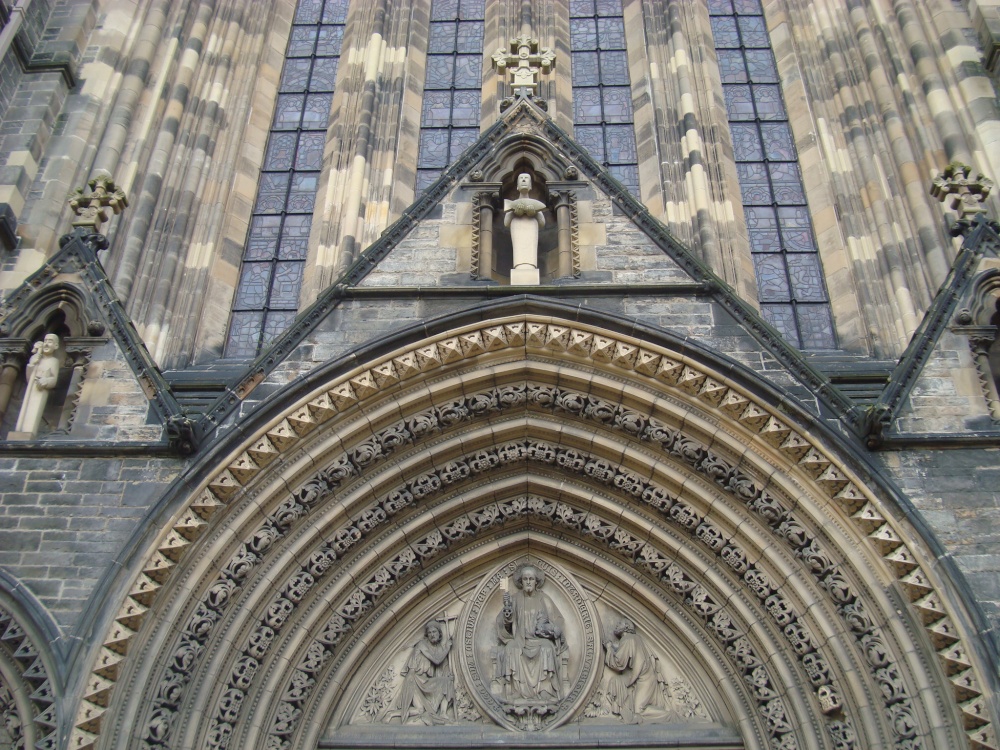 |
St Mary's Cathedral This picture appears in the following picture tour: Camera Make: SONY� Model: DSC-W200� |
 |
St Mary's Cathedral This picture appears in the following picture tour: Camera Make: SONY� Model: DSC-W200� |
 |
Old Coates House near St Mary's Cathedral This is one of the most notable buildings around St Mary's Cathedral from an historical viewpoint. It was built between 1610 and 1615 by John Byres and was restored in 1830 by Sir Patrick Walker. It belonged to Barbara and Mary Walker and was part of their gift to the Scottish Episcopal Church, which enabled St Marys’ Cathedral to be built. For some time it was the home of the Cathedral Choir School, which became St Mary’s Music School in 1971. When the Music School moved in 1995 to the larger Coates Hall nearby Old Coates House became the Episcopal Church' Theological Institute. It now fulfil's a variety of purposes, including housing and provides teaching and meeting rooms. This picture appears in the following picture tour: Camera Make: SONY� Model: DSC-W200� |
 |
West Bow This picture appears in the following picture tour: Camera Make: SONY� Model: DSC-W200� |
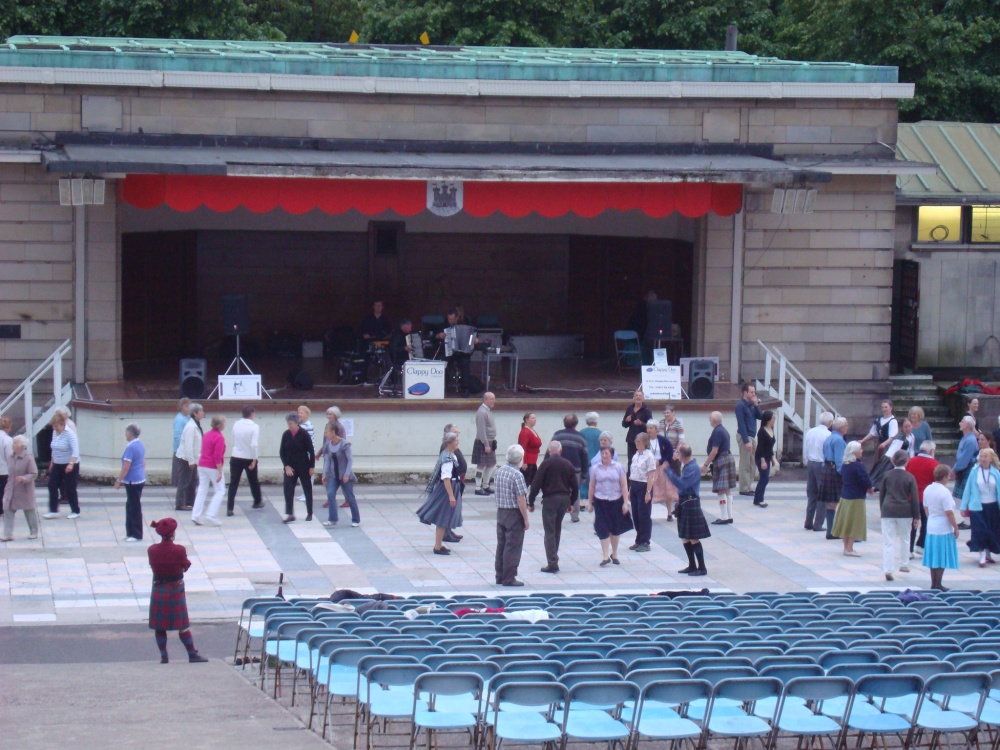 |
Traditional reel accompanied by Clappy Doo Situated in West Princes Street Gardens, The Ross Bandstand is an open-air theatre. The Bandstand and terraced area were developed in 1935 and has since played host to many rock, pop and brass bands, plays, orchestras and classical concerts over the years. This picture appears in the following picture tours: Camera Make: SONY� Model: DSC-W200� |
 |
The Call 1914 Situated in Princes Street Gardens this bronze statue is a tribute to American Support for Scotland at the start of the Great War in 1914. This picture appears in the following picture tours: Camera Make: SONY� Model: DSC-W200� |
 |
Royal Mile Primary School A typical Victorian school, formerly was known as Milton House Public School and is used as a polling station for the constituents of Edinburgh Central. This picture appears in the following picture tour: Camera Make: SONY� Model: DSC-W200� |
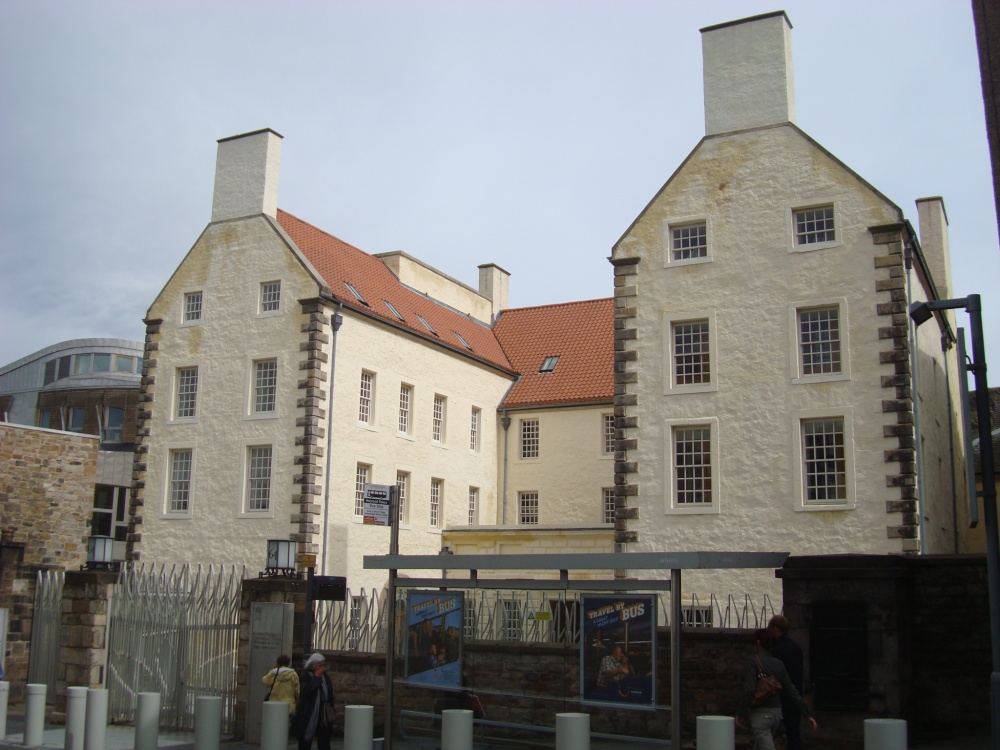 |
Queensberry House Queensberry House is a 17th century building, incorporated into the Scottish Parliament complex. The most famous resident is probably James Douglas, 2nd Duke of Queensberry who was influential behind the Treaty of Union in 1707. The same evening the 2nd Duke was signing the Act of Union, his son, the insane Earl of Drumlanrig, is said to have roasted a servant boy on a spit in an oven in the kitchens. The oven can still be seen in the Parliament's Allowances Office. From 1803 to 1996 the building was used as a hospital. This picture appears in the following picture tour: Camera Make: SONY� Model: DSC-W200� |
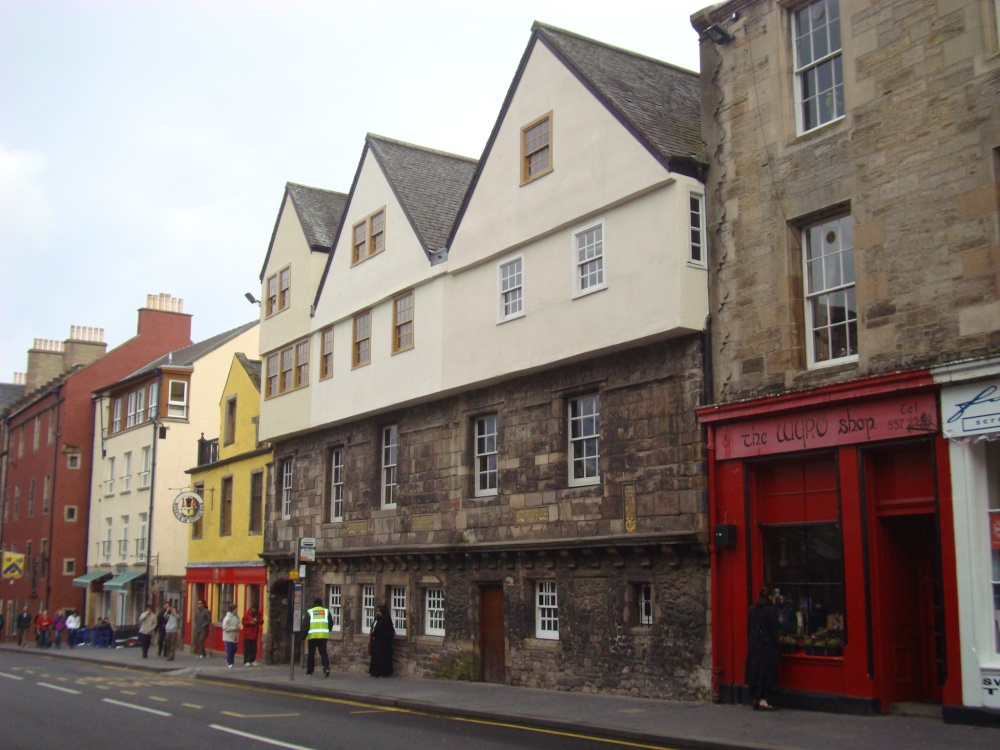 |
Huntly House This is a typical 16th century built Canongate house with the triple gables over the two lower stories and its plastered, wood-framed upper floors. Three early 16th century dwellings were integrated by John Acheson in 1570 to provide a roomy, though modest residence. The name probably came from Marquis of Huntly who briefly stayed there in 1636. This house was also known as 'The Speaking House' because of the Latin inscriptions dispalyed on the exterior wall. There are five mottos, four from the 16th century and one which was added when it was last restored in 1932. This picture appears in the following picture tour: Camera Make: SONY� Model: DSC-W200� |
 |
Lawnmarket This picture appears in the following picture tour: Camera Make: SONY� Model: DSC-W200� |
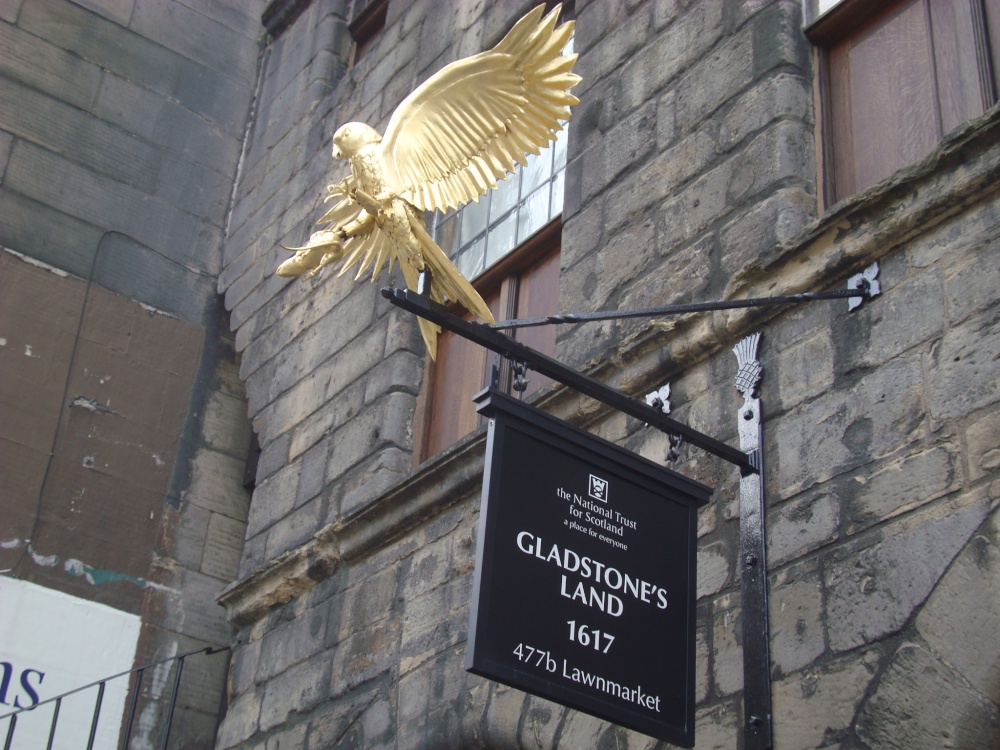 |
Gladstone's Land sign This picture appears in the following picture tour: Camera Make: SONY� Model: DSC-W200� |
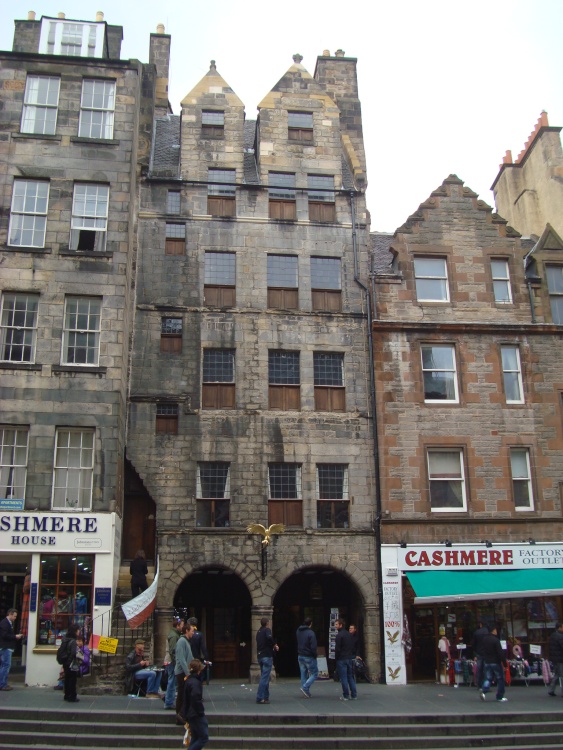 |
Gladstone's Land Built in 1550, this is an example of an early high-rise which housed diverse social classes. The merchant and his family would have lived in two of the apartments while the others would have been rented to another merchant, a minister, a knight and a guild officer. This picture appears in the following picture tour: Camera Make: SONY� Model: DSC-W200� |
 |
West Bow This picture appears in the following picture tour: Camera Make: SONY� Model: DSC-W200� |
 |
'Landform' by Charles Jencks, 2002 Scottish National Gallery of Modern Art in the background. This picture appears in the following picture tour: Camera Make: SONY� Model: DSC-W200� |
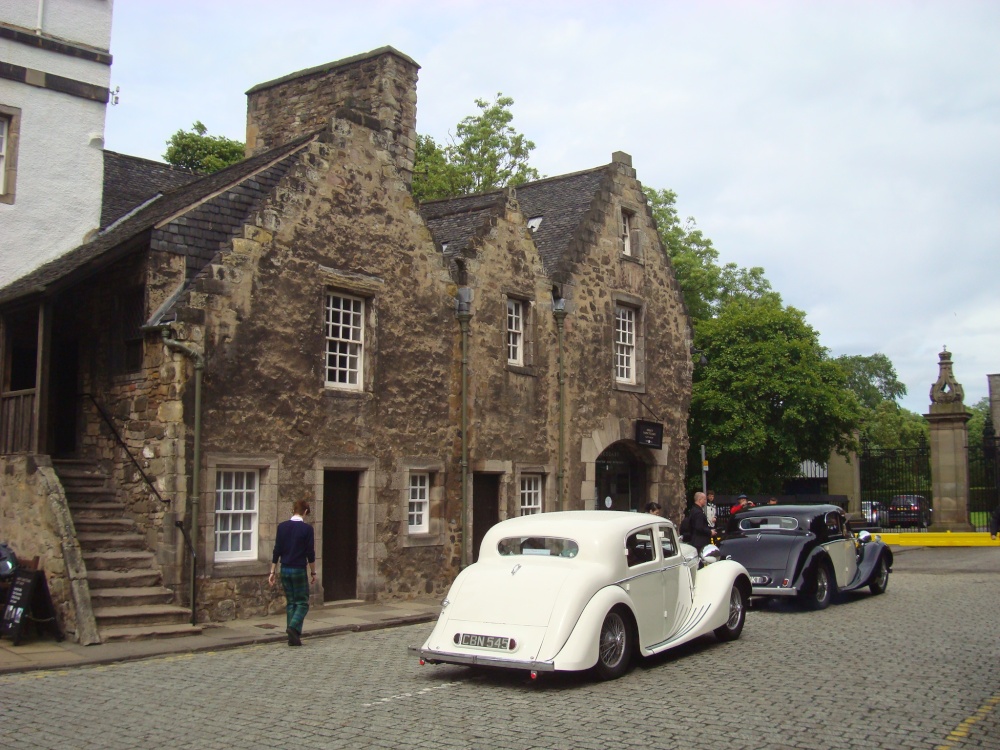 |
Canongate, Abbey Sanctuary This picture appears in the following picture tour: Camera Make: SONY� Model: DSC-W200� |
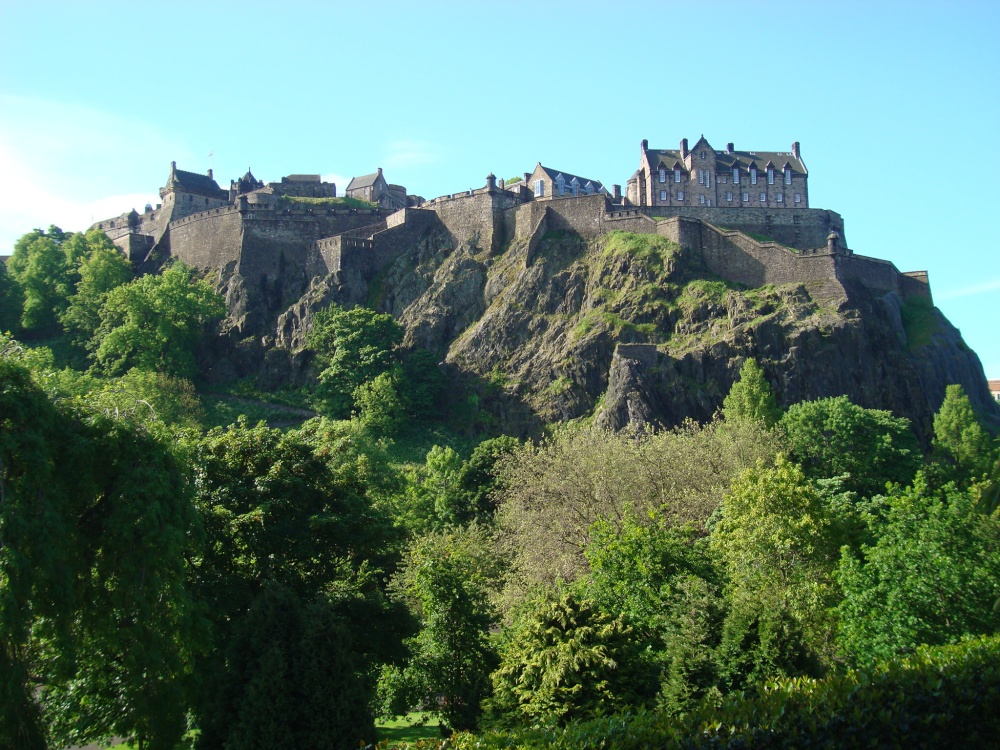 |
Edinburgh Castle This picture appears in the following picture tours: Camera Make: SONY� Model: DSC-W200� |
 |
Calton Hill This picture appears in the following picture tours: Camera Make: SONY� Model: DSC-W200� |
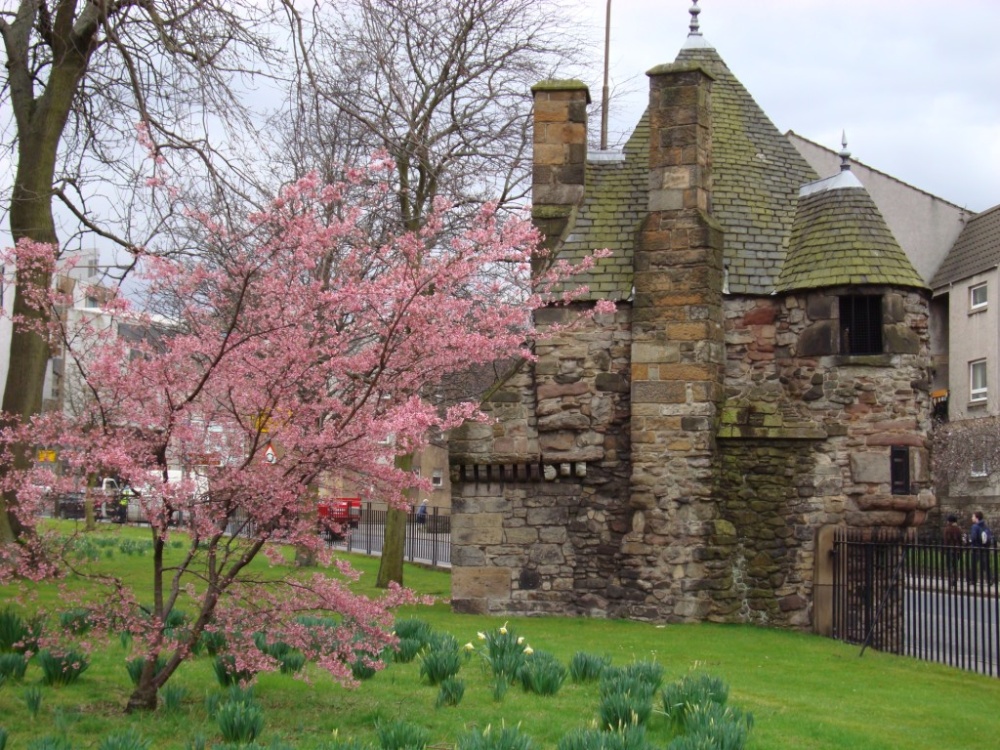 |
Queen Mary's Bath House Just beyond the Palace of Holyroodhouse this tiny turreted building was probably a summer pavilion or dovecot. The small cavity in the wall of the early 17th century property is reputed to have contained a bath, supposedly where Mary, Queen of Scots, used to bathe in sweet white wine. The house was once attached to a bourdary wall, enclosing the King's Privy Garden and the Royals would most likely would have used it as summer house. This picture appears in the following picture tour: Camera Make: SONY� Model: DSC-W200� |